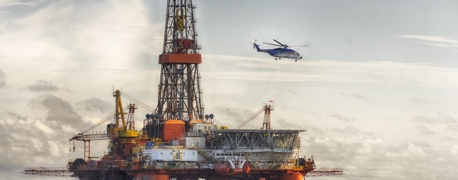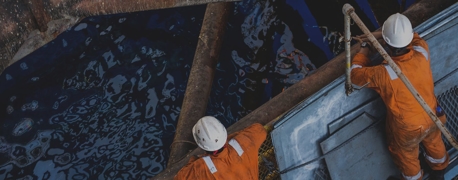Watchkeeping: Engine Room Safety for Workers

In the maritime industry, where the safety of the vessel and its crew is paramount, watchkeeping in the engine room stands as a fundamental practice. This routine, systematic procedure is not just about adhering to a checklist; it's about ensuring the heart of the ship operates smoothly, efficiently, and safely. The engine room, with its complex array of machinery, requires vigilant monitoring to prevent failures that could lead to fires, explosions, or catastrophic environmental damage.
What Is Watchkeeping?
Watchkeeping in the engine room involves a team typically comprising an engineer in charge and an assistant engineer. Their primary duties include inspecting the main propulsion plant, auxiliary machinery, and steering gear spaces, detecting any irregularities in temperature, sounds, or smells that might indicate a problem. Any detected malfunctions or breakdowns must be noted, reported, and corrected promptly. This team operates on a rotation, ensuring 24/7 coverage, followed by an eight-hour rest period to mitigate fatigue—a significant factor in human error at sea.
To effectively perform their duties, watchkeepers should follow these guidelines:
- Develop a Strong Knowledge Base: Understand machinery operations, maritime regulations, and the latest technologies to improve decision-making.
- Use All Senses: Employ touch, hearing, smell, vision, taste, and intuition to monitor machinery conditions and detect issues early.
- Follow Documentation: Adhere to all necessary documents in the engine room, such as manuals and safety instructions.
- Analyze Logbook Entries: Regularly review the engine room logbook to track machinery performance and conditions over time.
- Communicate Clearly: Ensure that all relevant engine room activities and conditions are communicated to the bridge.
- Conduct Thorough Inspections: Perform complete inspections of the engine room, checking all machinery to identify any potential issues early.
- Respond to Alarms: Pay attention to alarm systems, distinguishing between faulty and genuine alarms.
- Report Issues Promptly: Never hide faults or mistakes. Report and address them immediately to prevent serious safety concerns.
- Ask for Help When Needed: Recognize when a problem is too big to handle alone and seek assistance.
- Observe Alcohol Policies: Avoid alcohol as it impairs the ability to perform watchkeeping duties safely.
- Manage Fatigue: Take necessary breaks to maintain alertness and decision-making capabilities. Rest is essential in managing fatigue effectively.
How to Take Over a Watch in the Engine Room at Sea
Taking over a watch in the engine room is a comprehensive exchange of crucial information that ensures the incoming watchkeeper is fully briefed on the engine room's current status, ongoing issues, and any special instructions or alerts. Here's a detailed guide on how to effectively take over a watch in the engine room at sea.
The Handover Process
- Special Orders: Begin with discussing any special orders related to ship operations, control systems, or maintenance work that might affect the engine room's functioning. This includes standing orders from the chief engineer or the company that must be adhered to during the watch.
- Tank Levels: Review the levels of critical tanks, such as bilges, ballast, sewage, reserve, slop, and fuel tanks. Highlight any that require special attention or are critical to the ship's current operation phase.
- Fire Safety: Discuss the condition and readiness of fire extinguishing equipment and systems. If any sections have been isolated or any fire alarms disabled, ensure the relieving officer is aware.
- Emergency Procedures: Brief on any special modes of operation in case of emergencies, damage, navigating icy or shallow waters, and any precautions or preparedness measures in place.
- Ongoing Maintenance: If maintenance work is being carried out in the engine room, provide details of the machinery under maintenance, the work location, the crew involved, and any potential hazards associated with the maintenance activities.
- Equipment Failures: Inform of any equipment failures or malfunctions that have occurred, detailing the nature of the failure and any temporary or permanent corrective actions taken.
- Pre-Departure and Arrival Checks: Confirm that all pre-departure checks were made when the ship left the port and highlight any pending checks. Similarly, review the pre-arrival checks and ensure the relieving officer is informed of any that are missing.
- Machinery Status: Share detailed information on the condition and operational mode of key machinery, including the main engine, boiler, and auxiliary engines. Highlight any adjustments or monitoring required for optimal performance.
- Manual Monitoring: If any equipment requires manual monitoring, provide specifics, including the frequency of checks and any recent observations or trends.
- Adverse Conditions: Discuss any adverse ship conditions that could impact the engine room's operation or require special attention during the watch.
- Auxiliary Machinery: Update on the condition and operational modes of all significant auxiliary machinery like purifiers, freshwater generators, oily water separators, pumps, and sewage treatment plants.
- Unattended Issues: If any machinery or issue failed to receive adequate attention during the previous watch, ensure the relieving officer is made aware and asked to prioritize it.
- Boiler Controls and Equipment: Provide details on the condition and modes of automatic boiler controls and any other equipment related to steam boiler operation.
- Documenting in the Logbook: Ensure all important parameters regarding the main and auxiliary machines are accurately recorded in the engine room log book.
The Importance of Documentation
Documentation ensures that all operations in the engine room adhere to standardized procedures. This standardization is crucial not only for maintaining operational efficiency but also for ensuring that safety protocols are followed to the letter. In an environment where even a minor oversight can lead to significant consequences, having a standardized approach to tasks and checks provides a safety net for the crew and the vessel.
Logbooks and other records serve as a historical account of the engine room's operational status, issues encountered, and actions taken. This record is invaluable for troubleshooting, as it allows engineers to trace the history of specific pieces of equipment or problems, understand patterns, and make informed decisions based on past occurrences.
Maritime operations are subject to rigorous regulatory oversight. Documentation ensures compliance with international regulations. It also provides a layer of accountability, as it records the actions and decisions of the engineering crew, which can be reviewed in case of incidents or audits.
For new crew members or during shift changes, documentation provides a comprehensive overview of the engine room's current state and ongoing issues. This information is critical for training purposes and effective handovers, ensuring that incoming personnel are fully briefed and prepared to take over their duties.
The Role of Regulatory Oversight
Regulatory oversight in the maritime industry plays an important role in operational safety, environmental protection, and crew welfare. Within the engine room, the role of regulatory bodies becomes even more pronounced. These organizations set the standards and protocols that govern the minutiae of watchkeeping practices, ensuring that every procedure, from routine checks to emergency responses, is conducted within a framework of rigorously defined guidelines.
International Maritime Organization (IMO) & ISM Code
At the forefront of maritime safety and regulation is the International Maritime Organization (IMO), a specialized agency of the United Nations. The IMO is responsible for the safety and security of shipping and the prevention of marine and atmospheric pollution by ships. Its comprehensive framework of conventions, codes, and regulations is designed to enhance the safety of life at sea while minimizing the environmental impact of maritime operations.
Central to the IMO's regulatory framework is the International Safety Management (ISM) Code. The ISM Code provides an international standard for the safe management and operation of ships and for pollution prevention. It emphasizes the importance of safety management objectives, requiring ship operators to establish and maintain a safety management system (SMS). This system encompasses all aspects of safety, from the construction and equipment of ships to the training and preparedness of their crews.
Compliance & Enforcement
Compliance with the regulations set forth by the IMO and under the ISM Code is not merely a matter of legal obligation; it is integral to the operational integrity of every vessel. The engine room is subject to specific standards regarding its design, equipment, and operation. These standards ensure that the machinery and systems within the engine room are maintained in a condition that guarantees safety at sea, prevention of human injury or loss of life, and avoidance of damage to the environment.
Enforcement of these regulations is carried out through a combination of flag state control and port state control. Flag states, under whose laws a ship is registered, are responsible for ensuring that their ships comply with international and national regulations. Port state control, on the other hand, allows a country to inspect foreign ships in its ports, ensuring they meet international safety, security, and environmental standards. This dual mechanism of enforcement ensures that vessels worldwide adhere to a uniform standard of safety and operational excellence.
Training & Certification
A critical aspect of regulatory oversight is the emphasis on training and certification for maritime professionals. The Standards of Training, Certification, and Watchkeeping for Seafarers (STCW) Convention and Code set minimum qualification standards for masters, officers, and watch personnel on seagoing merchant ships. Under the STCW, engine room personnel are required to undergo specific training modules and certification processes that prepare them for the responsibilities of watchkeeping. This training encompasses not only technical knowledge and operational skills but also emergency preparedness, environmental awareness, and team communication.
The Future of Watchkeeping
As technology evolves, so too does the practice of watchkeeping. New tools and systems are continually being developed to assist watchkeepers in their duties, making the process more efficient and effective. However, the fundamental principles of watchkeeping remain unchanged: vigilance, knowledge, and communication are key to ensuring the safety of the engine room and, by extension, the entire vessel.
Watchkeeping in the engine room is a critical task that demands a high level of skill, dedication, and responsibility. By adhering to established procedures, utilizing all available senses, and maintaining clear communication, watchkeepers play a vital role in safeguarding the maritime industry's future.


